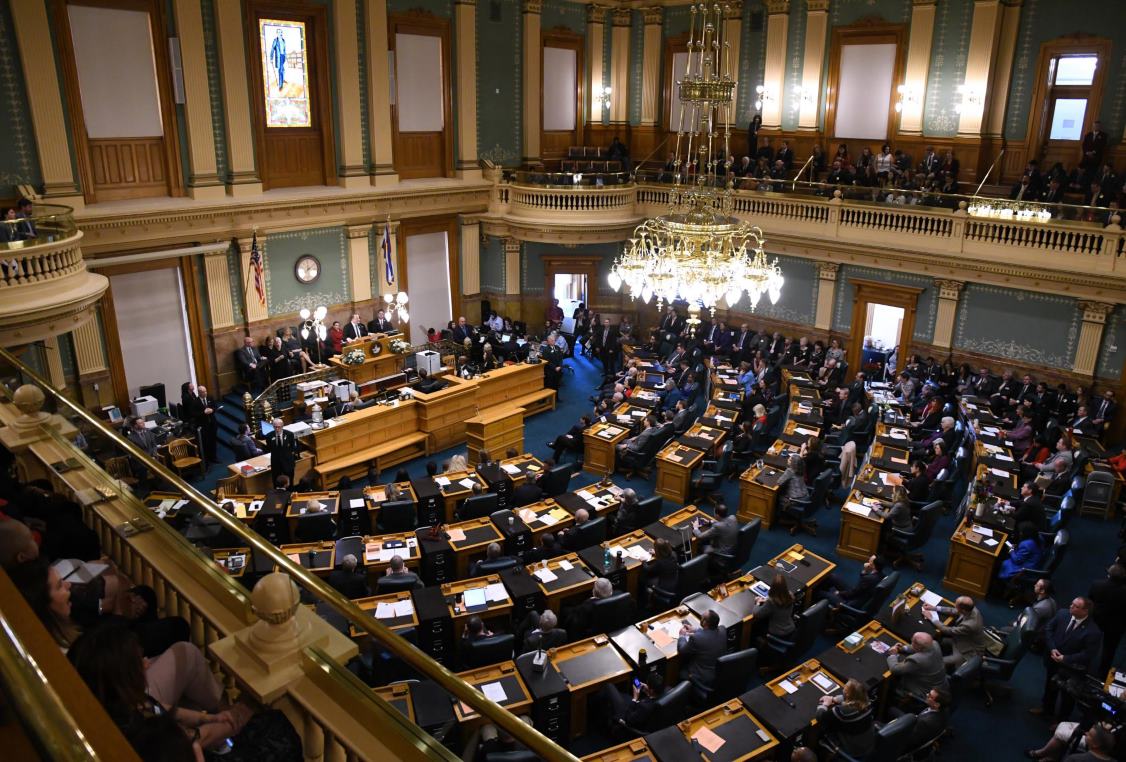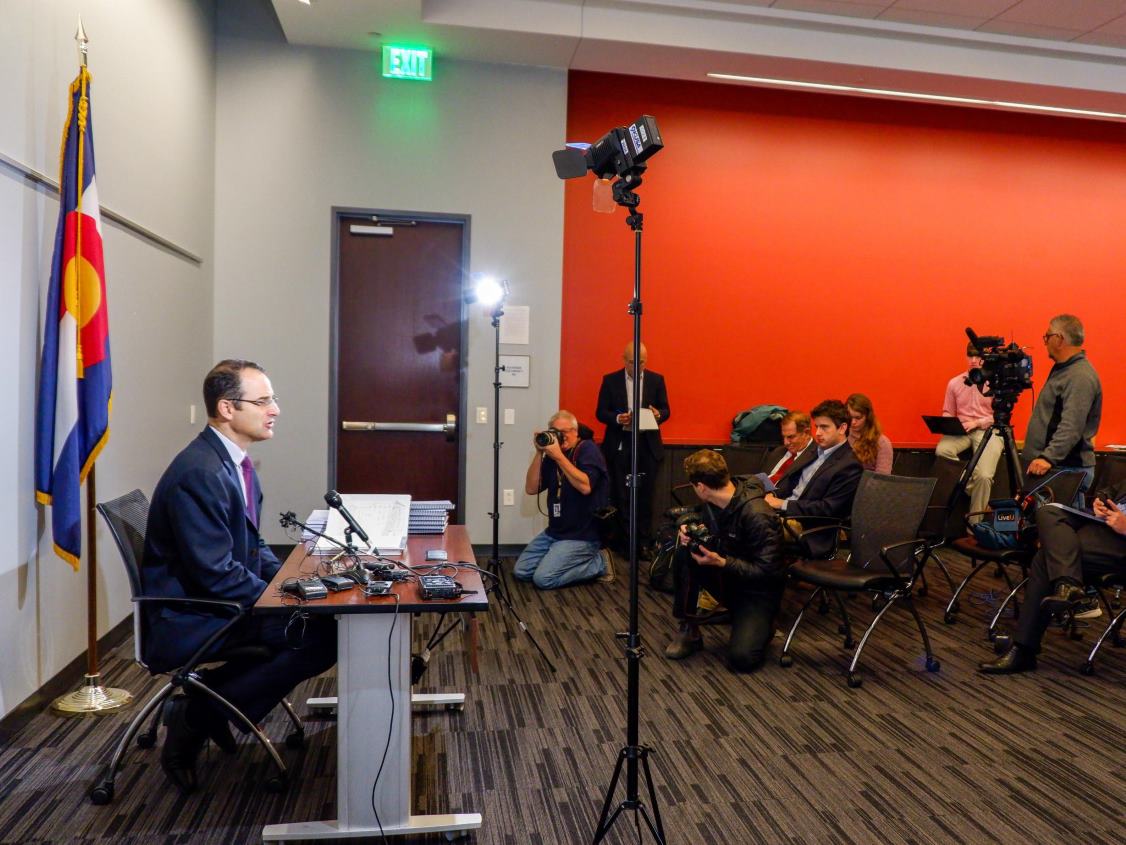|
Even if Colorado gives child sex assault victims unlimited time to sue, it may be too late for those already abused
By Jesse Paul
Lawmakers are considering eliminating the civil statute of limitations for child sex assault, but Colorado’s constitution appears to prohibit laws from working retroactively. Victims’ advocates think there is a path to address past abuse. Colorado lawmakers plan to bring legislation this year that would give child sexual assault victims unlimited time to sue their abusers and the institutions that protect the predators. But for people abused in the past — including the more than 150 victims of Catholic priests identified in a recently released report on sexual misconduct in Colorado — the change may be coming too late. That’s because the legislature’s attorneys say Colorado’s constitution prevents laws from working retroactively and that once a statute of limitations has expired, a case cannot be reopened. Many survivors, however, don’t come forward until decades after their abuse. Right now, child sex assault victims in Colorado have six years from the day they turn 18 to sue their abusers. They have just two years to sue an organization that acted negligently in allowing the abuse to continue or by shielding the perpetrator. Even though other states have successfully changed their statutes to allow survivors to retroactively sue, lawmakers pushing for the alteration to Colorado law say their hands are tied. But victims and their advocates say the constitutional question isn’t settled and that they’d like to see a fight. “If we would have seen a constitutional path, we might have gone forward with it,” said Rep. Dafna Michaelson Jenet, a Commerce City Democrat who is leading the charge to eliminate the statute of limitations. “At this point, I don’t see one without being in really flagrant violation of the way our constitution was written in Colorado. This was done in some other states. Their constitutions are different than our constitution.” There are also political concerns: Backers of the bill think that trying to make a measure apply to past abuse could mean there wouldn’t be enough votes to get any legislation addressing the civil statute of limitations for child sexual assault through the General Assembly in 2020. “We will lose certain members that we’ve already gotten on board,” said Rep. Matt Soper, a Delta Republican and another prime sponsor of the effort. Either way, he said, he’s expecting a fierce battle. Some victims’ advocates want Michaelson Jenet and Soper to try anyway. They want the bill to contain a clause that would, at the very least, allow any person who was sexually abused as a child to have a two-year window to file lawsuits against those who assaulted them. At least eight states, including Arizona and New Jersey, have laws giving victims a window to revive lawsuits against their abusers, according to CHILD USA, a national non-profit working to end child abuse and neglect. (For criminal cases, there is no statute of limitations for child sex assault in Colorado, though children are defined under state law as being age 14 or younger.) The divide between the lawmakers and the victims and their advocates led to tension during a recent stakeholder meeting about the bill. Michaelson Jenet and Soper were trying to manage expectations while the other side was pushing for them to take a leap. “We’re compromising against ourselves before we even start,” said Ted Trimpa, a powerful Democratic lobbyist who is working on the legislation on behalf of the Victim Policy Institute, a national organization based in Virginia. “This is no time to be compromising with ourselves. We need to do what sounds impossible and show others what’s impossible to us.” Trimpa said during the meeting that he thinks the political tide will change once lawmakers hear stories of abuse and there is a public education campaign about the issue. “The only time, to be blunt, that we will have a chance of passing something like this is when we have Democratic control,” Trimpa said of the fact that Democrats control the House, Senate and governor’s office. “Trifectas don’t come by very often.” Jeb Barrett, who directs the Denver chapter of the Survivors Network of those Abused by Priests, said that national organizations representing child sex abuse victims are keeping tabs on how Colorado’s laws change. “It’s an opportunity to shine,” he said. “The assault of children has always been illegal, but we have had no access to the proven American justice system because of these predator-friendly, institutional-friendly statutes of limitations that they hide behind. They wait for them to expire before they admit to anything.” Trimpa, who has hired a fellow lobbyist to speak to legislators about the coming measure and ensure they know victims’ stories, solicited his own legal opinion on the constitutionality of retroactively eliminating the statute of limitations and giving the abused a two-year window to file lawsuits. Trimpa’s attorneys say there is a path to hold organizations and people accountable for past child sex abuse, though he declined to share a copy of the legal opinion with The Colorado Sun. “It’s important that we hold them accountable to send a strong signal,” he said. Michaelson Jenet says she spoke with Trimpa about what his attorney’s found on Monday, but she thinks the path is very narrow. Meanwhile, an opinion from the Office of Legislative Legal Services argues the exact opposite of Trimpa’s attorneys. “Once a statute of limitations has run, it is unconstitutional for the General Assembly to revive a claim to which the statute of limitations defense applies,” the opinion says. “Thus, the proposal to allow civil sexual abuse claims despite the statute of limitations would likely be found unconstitutional by a Colorado court.” The legislature’s attorneys also cited a Colorado Supreme Court ruling that holds: “When the bar of the statute of limitations has once attached, the legislature cannot revive the action.” Michaelson Jenet said she doesn’t think the bill could overcome the constitutional issue. She says she wishes it were possible for the legislation to be retroactive, but she doesn’t want to risk the entire measure by violating the constitution and having the bill overturned in court. “It’s fair that they want to settle the issue. Don’t we all want to come to a resolution?” she asked, adding that she has been working on the legislation for more than a year, long before the attorney general’s report on Catholic priest abuse was released. Michaelson Jenet said she also might add a clause to the bill that allows the Colorado Attorney General’s Office to oversee or administer voluntary reparations programs for organizations, like the Boy Scouts, in cases where children were abused on their watch. Right now, the AG’s office is working with Colorado’s three archdioceses to administer a voluntary reparations program compensating victims abuse by priests. Some victims, however, have reached out to The Colorado Sun and complained that the process is burdensome and unfairly asks for proof of crimes that happened when victims were young children. Trimpa also noted that the Catholic Church’s reparations process is not open to people who were abused by religious order priests or seminarians. Sen. Bob Gardner, a Colorado Springs Republican and leading conservative legal voice in the Capitol, applauds the idea of voluntary reparations programs. He’s opposed to eliminating the statute of limitations for civil child sex assault cases — though he would be OK with a “very lengthy” extension — and sees retroactivity as being constitutionally impossible. “As an attorney, I just have difficulty with the idea that a claim would be finally extinguished at some point — as these have been — and then the state could come back and somehow give someone a right that did not exist,” Gardner said. “We just don’t do that in Anglo-American law. It’s happened in several states. I’ve been surprised that there’s not been more litigation. But maybe it’s just because those statutes are too new to have risen to the point of appeals.” The Denver Archdiocese told The Colorado Sun that it doesn’t think any change to Colorado’s statute of limitations should be retroactive. “We are aware of a potential bill to change the statute of limitations in Colorado, though we have not seen a draft and therefore cannot comment on specifics,” said Mark Haas, a spokesman for the archdiocese. “We believe that any change to the statute of limitations should be prospective, and drafted in a manner that is reasonable, consistent and fair to everyone.” Haas added that the church is “focused on our own efforts to support survivors,” specifically through the reparations program. Legislation to eliminate Colorado’s civil statute of limitations for child sex assault cases is expected to be introduced in the coming weeks. Contact: jesse@coloradosun.com
|
.
Any original material on these pages is copyright © BishopAccountability.org 2004. Reproduce freely with attribution.



